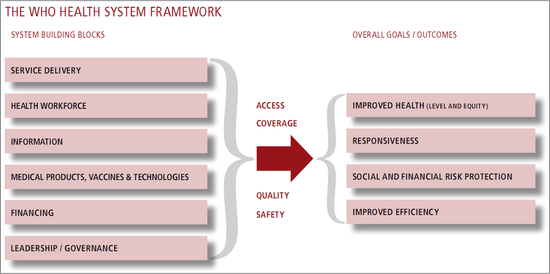
Health care systems – their characteristics, the interplay of their actors, and the assessment of their performance – are complex and usually not well understood. This course provides a structured introduction into how health care systems are organized, financed and regulated in general and is applicable to both high-, middle- and low-income countries.
Lectures will provide a general introduction into health systems frameworks, actors and functions of health care systems, with an emphasis on systems’ building blocks in the first half and on the intermediate and final outcomes health systems seek to achieve (and how to assess success and failure) in the second half.
Language: English
Course information
The aim of the module is to enable students to understand, analyse and evaluate heath care systems in different contexts. Students will develop the following competencies and social skills: (i) ability to describe and compare different health care systems, (ii) capability to describe and analyse the development of health care systems, (iii) work in a multi-disciplinary and -cultural environment and team
Health care systems – their characteristics, the interplay of their actors, and the assessment of their performance – are complex and usually not well understood. This course provides a structured introduction into how health care systems are organized, financed and regulated in general and is applicable to both high-, middle- and low-income countries.
Lectures will provide a general introduction into health systems frameworks, actors and functions of health care systems, with an emphasis on systems’ building blocks in the first half and on the intermediate and final outcomes health systems seek to achieve (and how to assess success and failure) in the second half.
The module will thus first provide a general introduction into the framework, functions and objectives of health care systems. The following blocks deal with financing (raising resources, pooling, allocation, purchasing and third party payer-provider relationships, reimbursement); governance, stewardship as well as regulation of third-party payers and health care providers; care delivery/ provision of health services; medical products and technology; and the health workforce. Well-known types of health care systems (social health insurance/ "Bismarck", tax-financed/ NHS etc.), their reforms as well as questions regarding the public-private mix will be presented and discussed.
In the second half, lectures introduce access and coverage, quality and safety, technical and allocative efficiency, responsiveness, and overall Health System Performance Assessment, looking at final outcomes, i.e. improved health, responsiveness, social and financial risk-protection, and efficiency.
Lectures with visualization and discussion, including a workshop on how to find information and data for individual study and the seminar paper.
Students are encouraged to exchange insights and opinions with the lecturer(s) and in the group.
Enroll me for this course
Learners
This course is offered by
Wilm Quentin has been a senior research fellow at the Department of Health Care Management since December 2009. He is leading the department’s focal area “Global Health” and the International Teaching Programme. Wilm is managing editor of the Journal “Health Policy”, is part of the editorial team of the WHO European Observatory’s Health Care Systems in Transition Series, and was one of the coordinators of the EuroDRG project. He has been a consultant for international Organisations (WHO EURO, WHO AFRO), national governments (e.g. Slowenia, Belgium) and other actors (national health insurance in Poland and South Korea). Wilm is teaching at the department on “Health Systems: Goals, Functions, Actors” and at the École des Hautes Études en Santé Publique (EHESP) on the module “Management & Health Policy”. He is a medical doctor and holds an MSc in Health Policy, Planning & Financing (HPPF) from the London School of Hygiene and Tropical Medicine (LSHTM) and the London School of Economics (LSE). He studied medicine and political sciences in Würzburg, Munich, Madrid, Leipzig and Marburg, where he graduated in 2007. He worked as a research assistant at the department of Health Economics of the University of Leipzig and was a visiting fellow at the Institut National de Santé Publique in Abidjan. He holds a Visiting Professorship position at the Kwame Nkrumah University of Science and Technology (KNUST), Kumasi, Ghana.